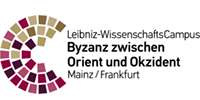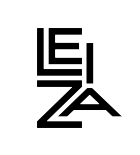The construction of religious identity, as well as religious inclusion and exclusion, are issues which are as central to human societies today as they were in the past. For much of the Middle Ages, these religious processes in Europe were strongly influenced by the Byzantine Empire. The Byzantine legacy endured after the fall of Byzantium; even today it plays an important role in processes of collective identity in (South-)Eastern Europe. Our conference therefore aims at examining processes of religious exchange and identity construction throughout Europe from Late Antiquity until the 20th century, with a particular focus on the interaction between Byzantium and its neighbours, as well as its successors. However, papers not dealing directly with Byzantium are also welcome.
The history of religious exchange underwent tremendous changes during the time span covered by the conference. In Late Antiquity, people in the Eastern and Western Mediterranean generally saw themselves as belonging to one church. An awareness of basic religious differences between East and West in particular began to emerge only later. With the conquest of Constantinople in 1204, these differences culminated in open conflict. The Frankish occupation of Byzantine territory, however, also gave rise to a new intensity of contact between Byzantine Orthodox and Latin Christians and generated processes both of integration and dissociation.
In a parallel development, integration and dissociation can both be seen in the relations between Byzantium and the Slavic world. Byzantine missionary activity in the Slavic world from the 9th century on resulted in an extended process of assimilation, but also provoked Slavic segregational reactions. This development continued long after the fall of Byzantium, becoming part of the nation-building processes of the 19th and 20th centuries.
The conference will explore how processes of religious contact and identity construction took place at differing times and contexts. In what ways did various groups come into contact, how was knowledge about the religious “Other” created, and how was it used in discourse? What role did faith and religion play for – inclusive or exclusive – identity construction? How was Byzantine culture and religion received both during the lifespan of the empire and later?













